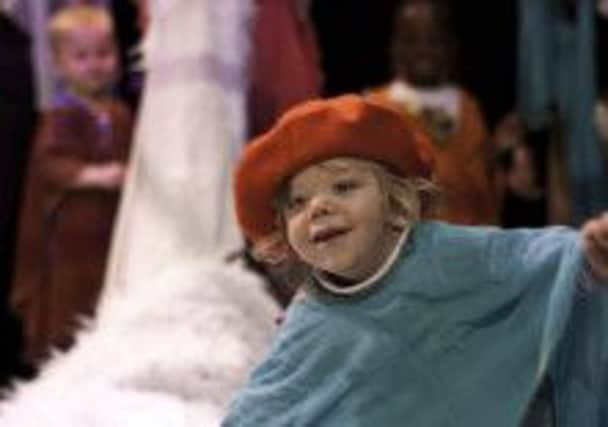Joyce McMillan: The true value of Licketyleap project


But even timid Margaret admitted that her heart’s desire was to get to the top of the mountain; so together, they set off, even though the journey meant travelling across a bog, and over the sea, and into a deep dark cave.
This is how it starts, the Licketyleap story; except that it’s not only a story, but an intense participative theatre experience for nursery-school children, and one that’s been shared with almost 1500 3-5 year-olds in Glasgow, Edinburgh, East Lothian and Fife, over the last two years. Licketyleap is the brainchild of Licketyspit Theatre Company, Edinburgh-based specialists in theatre for very young children, and of their artistic director, Virginia Radcliffe. And although – according to culture minister Fiona Hyslop – the arts in Scotland are now emerging from a period of number-crunching instrumentalism, when they were routinely faced with the impossible task of demonstrating in advance all the practical benefits they might eventually deliver, it remains true that a skilful group of artists, properly funded by the right agency, can be extraordinarily effective in helping to achieve certain clear social goals.
Advertisement
Hide AdIn the case of Licketyleap, the agency was the Scottish Government’s Early Years Early Action Fund, targeted on nursery-age children in communities with multiple deprivation problems; and the aim was to help the many young children in those communities who are withdrawn or uncooperative, unwilling to speak, and slow to develop social skills. So over a period of a few weeks, the Licketyleap team of two performers and three or four helpers would arrive in a nursery school, take a group of children (no more than ten at a time) through the magical live experience of the Licketyleap story – using simple props like an ordinary blanket and a piece of blue cloth – and then offer a series of follow-up experiences, from a chance for parents to come in and watch and discuss a film of the show, to opportunities for the children themselves to re-enact the story under their own steam, for a live audience of friends and family.
Intense educational experiences like Licketyleap don’t come cheap; at almost £400,000 so far, Licketyleap has cost more than £250 for every child who has taken part. Yet as the project’s current funding stream comes to an end, it’s difficult to read the testimonials from teachers and parents, or the surveys showing marked improvements in confidence and social skills – or to watch the videos of little children’s minds and language visibly expanding as they become drawn into the story – without feeling that this kind of sum is a drop in the ocean, compared with the down-the-line costs of dealing with children some of whom might, without this kind of intervention, become seriously disturbed and anti-social young adults.
And beyond the 1,455 children, 1,300 parents or carers, and 200-plus nursery staff who have been directly touched by Licketyleap, it’s also a project that raises wider questions: questions about what kind of society we are creating, where children apparently have so few opportunities – with caring adults, or older children – to take part in the kind of imaginative play that used to come naturally, or seemed to do so. There have always been parents who were reluctant to get down and play with their children; but in the age of small families, all-day television, and the ubiquitous computer game, children’s own imaginative play – and all the skills that it helps to develop – seems, at least for some, to have become a rare experience. “How would you get the kids to do that at home?” asked one young Dad, amazed at his own son’s performance on the Licketyleap video. “Just play,” said one of the actors, in response. “Just get down on the floor with them, and play.”
• For more visit www.licketyspit.com